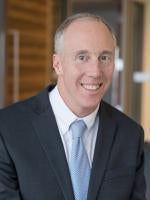The South Carolina Supreme Court recently issued two opinions concerning the unauthorized practice of law in real estate transactions. Under earlier Supreme Court cases, five aspects of a real estate loan or mortgage closing must be performed by a South Carolina licensed attorney: 1) the title search; 2) preparation of documents; 3) closing; 4) disbursement; and 5) recording of the documents. If a lender closes a mortgage in South Carolina without the supervision of a South Carolina licensed attorney, the lender may be barred from equitable relief, including foreclosure. For an overview of prior South Carolina decisions on the issue see our earlier update.
In Crawford v. Central Mortgage Co. and Warrington v. The Bank of South Carolina, issued June 19, 2013, the court held that modifying an existing loan without attorney supervision does not constitute the unauthorized practice of law. The opinion involves two separate cases in which borrowers asked the court to decide whether their lenders engaged in the unauthorized practice of law by preparing, mailing and recording loan modification documents without the participation of a licensed attorney and, as a result, whether their mortgages should be deemed void.
Crawford involved a 2005 residential loan and mortgage. The closing of the original loan and mortgage was supervised by a licensed attorney. After the borrower later failed to make payments, the lender approved the borrower’s requests in 2008 and 2010 to modify the loan. The lender prepared the modification documents. The borrower defaulted and the lender sought to foreclose on the mortgage.
Warrington involved a commercial loan and mortgage for purchase of land. The original loan closing was supervised by a South Carolina licensed attorney. At maturity the borrower could not make payment and the bank agreed to a series of three modifications. In each instance the bank prepared the modification documents using standard bank forms and recorded the forms without the supervision of a licensed attorney. After the loan again matured in 2010, the borrower did not pay and the loan went into default. The bank filed a foreclosure action.
In deciding that handling loan modifications does not constitute the unauthorized practice of law, the court makes a distinction between modifying a loan, where the borrower is in default, and refinancing, which the court characterizes as “the issuance of an entirely new loan.” The court previously decided that a lender who refinances a mortgage without attorney supervision engaged in the unauthorized practice of law, since it involves the same steps involved in an original purchase. Doe v. McMaster, 355 S.C. 306, 585 S.E.2d 773 (2003).
Going forward, lenders may modify loans with borrowers in default, without concern that they are engaging in the unauthorized practice of law. However, if the loan modification also involves taking new collateral or loaning additional money such that it could be viewed as an “entirely new loan,” lenders should be wary and seek the advice of South Carolina licensed counsel.
In the second recent decision issued July 10, 2013, Wachovia Bank v. Coffey, the court ignored the unauthorized practice of law issues raised by the Court of Appeals in its 2010 decision and decided that the bank could not foreclose a mortgage on a couple’s residence obtained by the husband where the residence was titled in the wife’s name only, holding simply that a lender cannot foreclose on an invalid mortgage. As the dissenting judge in Coffey noted, the Supreme Court’s decision muddies the water, leaving open the question of whether a lender who closes a loan or mortgage without the supervision of an attorney is barred from legal remedies (including suit on the note) in addition to equitable remedies.
The result of these two decisions is that lenders need not worry about closing loan modifications in-house, but the rule remains that in South Carolina any new mortgage or refinance closed after August 8, 2011 must be supervised by a South Carolina licensed attorney.




 />i
/>i